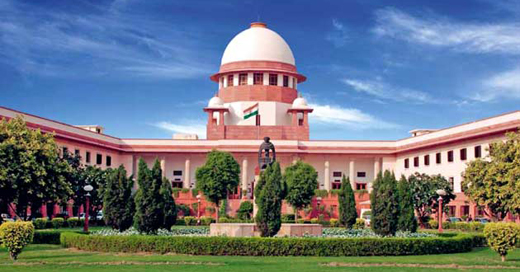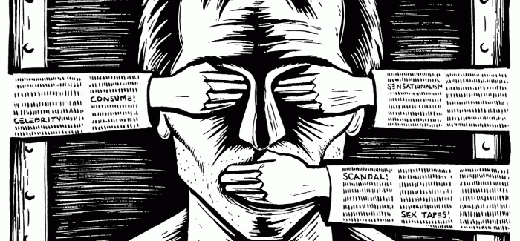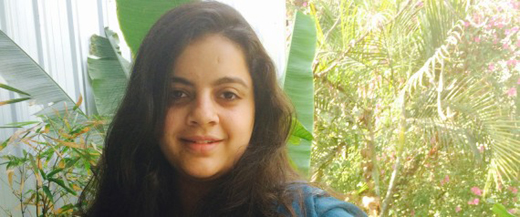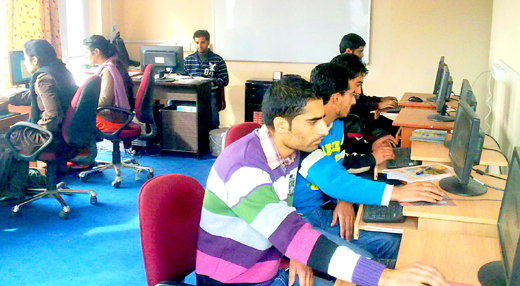India Once Again Awakens To Freedom
India Once Again Awakens To Freedom
mangaloretoday.com/ huffingtonpost
By Mishi Choudhary
The Indian Supreme Court has given India what it deserves -- a chance to experience free and open Internet and protection against censorship. The court said that Section 66A of the IT Act was not compatible with the morality of freedom, with our constitutional law, or with the human rights of every Indian. Even as successive governments were busy dithering, ducking, making U-turns, attempting as much as possible to change the subject, and, wherever they failed to change the subject, took the excuse of national security, the believers marched on. This is a victory for all of them, the quiet and some not-so-quiet comrades in the fight for free speech and expression, who could not and would not shake off the constitutional values and rights we hold so sacrosanct.

Since its introduction back in October 2000, the Information Technology Act has proved to be a highly controversial piece of legislation. In its thirteen-odd years of operation, the Act has managed to draw considerable criticism from the legal community and the general public. This judgment has capped it well and put our fears to rest. Finally, the rigmarole of 66A arrests will cease. Companies won’t be harassed any more to erase all negative comments about anyone who does not like a negative review about a certain Mr Ponytail and company.

"It is not the function of our government to keep the citizen from falling into error; it is the function of the citizen to keep the Government from falling into error. "
Section 66A was introduced without any debate in the Parliament through a 2008 amendment post the Mumbai attacks. It quickly garnered a reputation as a convenient tool of political censorship. Concerned by the recurring arrests made under Section 66A, a young law student filed in public interest before the Supreme Court challenging the constitutionality of 66A. Several others joined, variously challenging other nefarious parts of the IT Act.
One such petition was by the aptly-named MouthShut.com (India) Pvt. Ltd, filed towards quashing the Intermediaries Guidelines Rules that force intermediaries to screen content and exercise online censorship, a system of censorship by proxy. This rule was in effect outsourcing the dirty work to the companies against which a citizen has no rights.
The Indian Supreme Court in a landmark judgment reminded us that the freedom of speech and of the press is the Ark of the Covenant of Democracy, because public criticism is essential to the working of its institutions. Striking a blow at Section 66A, the Court noted that the section intends to punish any person that uses the Internet to disseminate any information that falls within vague words used in its draft. It makes for interesting reading even for non-lawyers as Shakespeare appears to explain the difference between advocacy and incitement.
Section 79 IT Rules that provide safe harbor to companies like Facebook, Twitter, Mouthshut also have found great relief in this judgment. Now a Court order is mandatory and an intermediary is only required to take down content upon receiving actual knowledge that a court order has been passed asking it to expeditiously remove or disable access to certain material must then fail to expeditiously remove or disable access to that material.
Several substantial questions of law have been decided which have far-reaching implications on Indian technology law and the civil liberties of Indians. While yesterday we did not know how to defend the multitude of bans, today the mind is without fear and the head is held high. Because of the Supreme Court, Internet in India has achieved freedom!
This 24-Year Old Girl Fought India’s Government To Win Its People Freedom Online
The petition that resulted in today’s landmark Supreme Court judgment that struck down section 66A of the IT Act, taking a draconian law that allowed people to be jailed for Facebook posts off India’s books, is "Shreya Singhal versus Union of India".

Singhal was 21 years old when she filed the petition in 2012. She expressed her feelings in one word when HuffPost India reached out to her: "Overwhelmed".
"It has been an education for me," she says, about the journey that basically made her petition one of the most closely followed in recent times. "I still can’t grasp the magnitude of this; I didn’t think it would be quite this large."
The 24-year-old is in the second year of law school at Delhi University’s Faculty of Law. Her petition, drafted by lawyers Ninad Laud and Ranjita Rohatgi, and argued by former Attorney General Soli Sorabjee, has changed the course of freedom of speech online in India.
It all started for her over a dinnertime conversation with her mother, Manali Singhal, a Supreme Court lawyer. "As it always is with lawyers, conversations invariably turn into arguments," she says, laughing.

Shocked to learn about the arrest of two girls for posting (and "liking") an "offensive" status message questioning Mumbai’s shutdown after the death of Shiv Sena patriarch Bal Thackeray, Singhal says she’d reached a "breaking point". The then-21 year-old prospective law student looked through the offensive post, and the legal sections the girls were booked under, and couldn’t believe it.
"I realised anyone at all could get arrested," she says, recalling how a spate of such arrests took place at the time. "My mother asked me why I wasn’t doing anything about it then."
So she did.
According to Singhal, within a day or two of this, she and her team of lawyers had drafted the petition and filed it in court. Both lawyers are friends with her mother. And why didn’t she ask her mother to help her instead? "I didn’t want this to be a family affair," she says.
The hardest thing for her has been the wait, she says. "The judgment itself came in less than a month," she says. "But the journey itself has taken two and a half years."
The young law student has had plenty of time to observe the processes, which will surely help her. "I have seen the sheer amount of work that was put in to write the petition and argue it in court," she says. "The amount of research that goes into arguing the case and even writing a judgment is immense. I learnt a lot."
Support poured in from family, friends, and even strangers. "I felt like I wasn’t doing it for one person who got arrested, but for everyone," she says. "In our diverse country, this is where we need our freedom the most, to express ourselves freely where there aren’t six degrees of separation."
So, what’s next in store for her? "I still have a year and half of law school left," she says. "I’m leaning towards pursuing Intellectual Property Rights law for now, though I can’t say what’s in the future."
Even before becoming a lawyer, this young student can have the satisfaction of having fought and won a landmark case--the kind of victory most lawyers can only dream of in a lifetime.
- How Many Kratom Capsules Should You Take?
- ’Satan’s Last Stronghold’ - US Man wrote before death on Andaman Island
- Net neutrality debate rages on; expert panel report by mid-May
- Rich and Mighty Get Away Lightly for Rash Driving, Says Supreme Court
- US may be indirectly funding religious conversion in India
- India Once Again Awakens To Freedom
- RTI query results in Rs 1.87 cr recovery from toll operator
- How To Handle Cell phones and Your Children: Some Basic Advice
- D K Raviís Death No more Mistery
- Modi And The Paradox Of The Middle-Class Millennials
- As a Christian, suddenly I am a stranger in my own country, writes Julio Ribeiro
- Beef Ban: What Are The Cows Really Getting Out Of It?
- 26 Killed including Shivamoga man in terror attack in J&K’s Pahalgam
- 22nd quinquennial uroos of Ullal Dargah from April 24
- Gold prices soar amid market turbulence, cross Rs 1 lakh per 10 grams
- Forest officials seize valuable wood; 2 booked for felling trees in reserve forest area
- Belthangady: 3 critical in collision between 2 cars
- Santhekatte road mishap: Critically injured hotel manager succumbs
- 4 injured as car overturns at Katapady
- Justice K S Hegde Institute of Management: Crafting global business minds for a changing world
- Uppinangady: House burgled when family visits church
- Uppinangady: Auto driver dies in collision with car
- Kasargod: Labourer stabbed to death
- Vijay Bharath Reddy takes charge as new SP of Kasargod
- India announces three-day mourning on passing of Pope Francis
- CM Siddaramaiah praises govt employees, honours 30 achievers with Sarvottama Seva award
- UPSC 2024 results out; Shakti Dubey tops civil services exams
- No authority above Parliament: Jagdeep Dhankhar takes aim at top Court
- Nirmala Sitharaman invites Global CEOs to join India’s growth story
- Twist in Bengaluru road rage: DRDO pilot, who played victim, booked for attempt to murder
- ISSF World Cup: India finish third in Peru World Cup
- Pope died of a stroke and heart failure, Vatican doctor says
- ‚ÄėThere can be no peace without freedom of religion’- Pope Francis
- Janivara row: Govt will take action, says CM Siddaramaiah
- US Vice President JD Vance meets PM Modi, talks focus on trade deal
- In USA, Rahul Gandhi says poll body ’compromised’ in India; BJP hit back
- How Karnataka former DGP’s property fight with wife ended in Murder
- CITY INFORMATION
- TRAVEL
- TOURIST INFORMATION
- HEALTH CARE
- MISCELLANEOUS




 Write Comment
Write Comment E-Mail To a Friend
E-Mail To a Friend Facebook
Facebook Twitter
Twitter  Print
Print 


